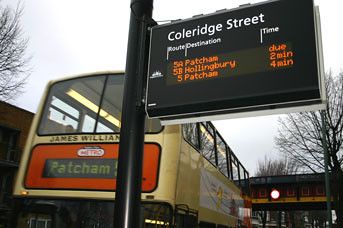Privatization, outsourcing, and the government
I have to admit, there are things that a government agency may not do as well as a private business, which has the concern about profits and competition as motivators to be responsive. Not that it always works. There can be a complacency when there isn't much competition or with a particular way of doing business that may have been successful for a long time.
But because of hurricanes, again people are pointing out the success of Walmart in distributing needed products, distribution that can work better than FEMA or state agencies.
The reality is that this is a no brainer. Walmart's core competency, their entire business model, rests on premier logistics, distribution systems, and supply chain management. They do this every hour of every day. They have to be good at it. If they aren't, Target or other companies will take advantage of their missteps.
Post-disaster supply chain management by FEMA just isn't that robust. It likely won't ever be, because compared to a 24/7/365 global supply chain (likely to become less global as transportation costs increase due to increases in oil prices), it isn't called upon to perform often enough. Frankly, even the military's distribution, logistics, and supply chain management systems are impacted by needing appropriations etc. from Congress (i.e., the problem with needing to "armor-up Humvees to protect from IEDs and lags in getting money and equipment).
Maybe it should be contracted out.
Similarly, I had an e-talk with a colleague in Cincinnati, who questioned my support of streetcars wrt their consideration there. She said, "are they all that important if it's just a matter of getting white people to ride, when they won't ride the bus?"
So I started talking about choice riders etc.
But later I was thinking about this in terms of how transit service is conceptualized. Is public transit supposed to be a service of last resort for people who don't own cars? Or is public transit supposed to be a system to enhance mobility by reducing the need and demand for automobiles, supporting urban economic development, reducing traffic and congestion, and getting _very large numbers of_ people to places effectively and efficiently.
For a lot of places, government provision of services are focused on providing service to people without other choices.
Maybe that inalterably impacts how service is provided?
Anyway, a couple weeks ago I had the tv on and came across the very tail end of an episode from a couple years ago of Gordon Ramsey's Kitchen Nightmares. The last couple images of the show showed buses from the Brighton & Hove transit system. One had a "shop local" message on the back of the bus. The other, I'm not sure, but I think it was about late night service hours for the bus system.
So I looked up photos of B&H buses on the web and found out a few things:
1. Buses are painted for specific routes.
2. With route numbers, and information on primary destinations along the route, and frequency of service.
3. They have a nice campaign for marketing riding the bus.
4. The system is privately owned, although it does receive public subsidies. (This is typical of the provision of bus service in the UK, and was typical of certain types of transit service in the U.S. for many years, until by the 1970s most privately owned public transit systems finally went bankrupt.)
But I wonder if because they are a privately owned system, they have a greater orientation to customer service and marketing, because it helps them make more money (and reduces the amount of money needed for subsidy)?

Real-time bus information signs.

Promotion of all day rider passes.

Painting scheme is bus-specific, listing primary destinations and service frequency. (Note that I know that the 38B Ballston-Rosslyn-DC Metrobus does this too, although not service frequency, and so does the Potomac Yards Metrobus, maybe the 9A, as does the Downtown Circulator.)

Local band, Lady Marmalade, featured in the "I ride the bus" campaign.
Labels: outsourcing, privatization, provision of government services, transit marketing



0 Comments:
Post a Comment
<< Home